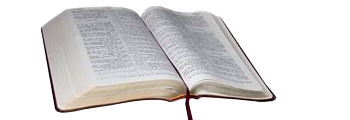
CHURCH OF THE BRETHREN NETWORK
Continuing the work of Jesus : Peacefully ~ Simply ~ Together
UNOFFICIAL WEBSITE OF THE CHURCH OF THE BRETHREN

 |
CHURCH OF THE BRETHREN NETWORK Continuing the work of Jesus : Peacefully ~ Simply ~ Together UNOFFICIAL WEBSITE OF THE CHURCH OF THE BRETHREN |
 |

Three Ministry Degrees
The Church of the Brethren no longer maintains these former degrees of ministry, but the Old German Baptist Brethren (OGBB) still do by a congregational election. Newly elected ministers are installed into the first degree, a stage which allows the minister and congregation to prove the suitability of the candidate for full ministry duties. Usually after a few years, he is advanced to the second degree, and after a few more years, he is advanced to the eldership (third). Congregations had from five to eight ministers of various degrees, and they would sit at the front of the church, in order, according to the dates of their installation. The OGBB do not formally license their ministers.
Brethren Encyclopedia: (Vol. I, p. 374.)
"... since 1855, three ministerial offices filled by congregational elections conducted by adjoining elders can be identified by the functions and duties associated with them."
First Degree: (training stage)
"The first office was that of the minister in the first degree...with the permission of second or third degree ministers, he could preach, or, in the absence of senior officials, conduct the entire worship service. An elder installed him by extending the right hand of fellowship and the kiss of peace."
Second Degree: (more serious duties)
"Installed in the same manner, the second-degree officer was authorized to preach; appoint, or schedule, worship meetings; administer baptism; perform marriages; and officiate at the love feast in the absence of, or at the request of an elder."
Third Degree: (Eldership)
"The highest degree of the ministry was the eldership... the senior of the second-degree ministers was elected to the eldership. The elder was the only official ordained through the laying on of hands, a ceremony that required the participation of at least two other elders. The elder, or bishop, was authorized to preside at council meetings, install deacons or ministers, anoint the ill, and conduct love feasts. Elders were responsible for the order and welfare of the congregation and the larger body of Christ."
Written by Ronald J. Gordon as extended information for other major articles